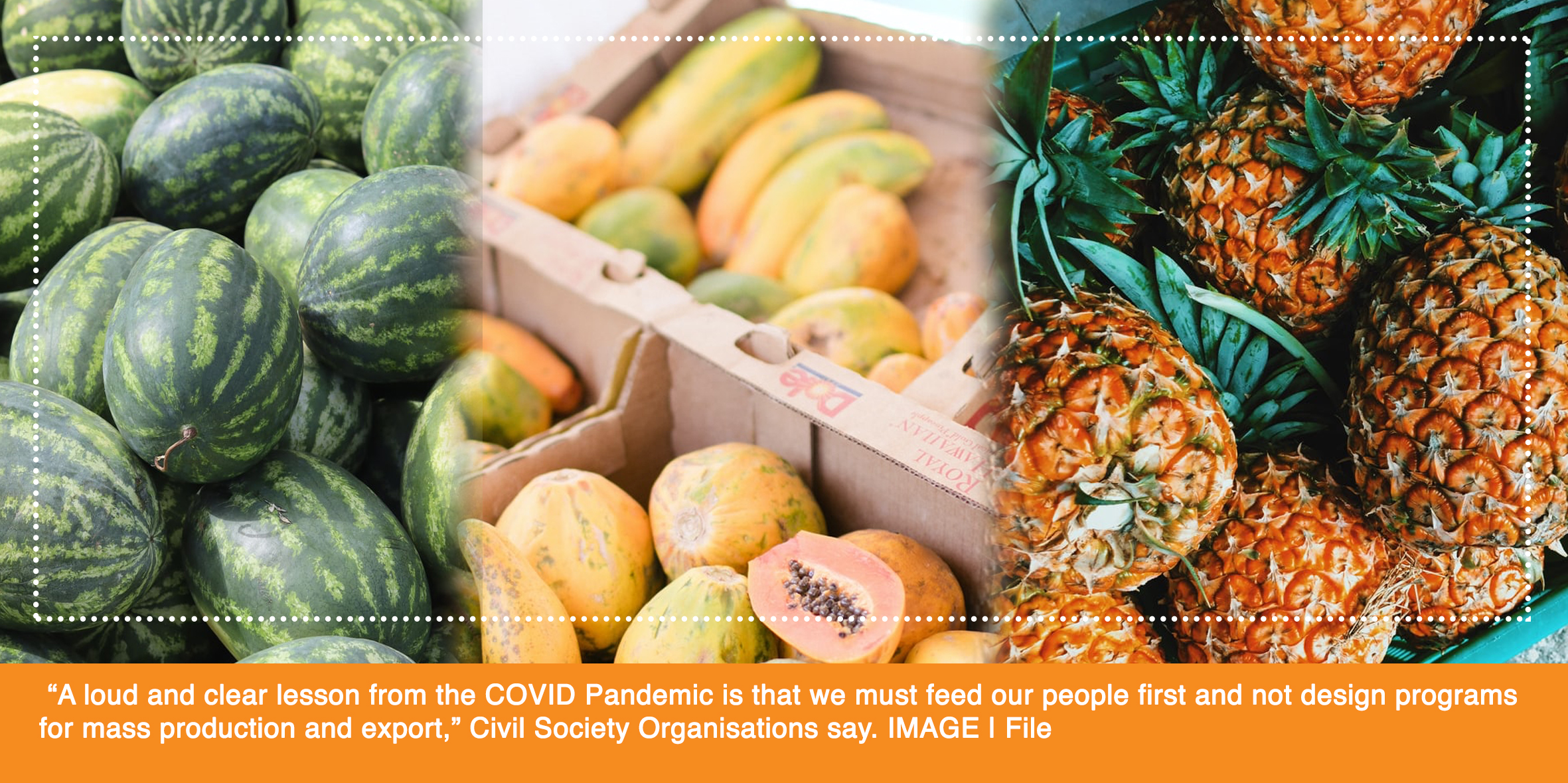A U G U S T 2 0 2 1

Friday 27
The issue of government capacities to inform decision making in countries so farmers are better equipped to maintain safe and secure food systems should be mainstream to all regional priorities, according to Civil Society Organisations recently attending the 7th Regional Meeting of the Pacific Heads of Agriculture and Forestry Services.
A civil society organisation statement from POETCOM, PIANGO, PIPSO and PIFON says while Sanitary and Phytosanitary Standards is permitting Governments to maintain appropriate protection, they must also allow countries to give food safety, animal and plant health priority over trade.
Civil Society Organisations continue to mobilise their efforts during the pandemic, “a loud and clear lesson from the COVID Pandemic is that we must feed our people first and not design programs for mass production and export,” Civil Society Organisations say.
And the unique needs of family producers should be considered in the regional framework to ensure “food safety and food security in the broader perspective beyond border controls”.
Emeline Siale Ilolahia, the Executive Director of PIANGO, said the governance mechanism of regional institutions should not be restricted to government and technical officials.
“We need to be transformative in our approaches and be transparent and accountable to our people and to deliberately include Civil Society with a seat at the table to contribute to a safe and secure Pacific”.
The scientific evidence and data to inform consumers and producers of food safety can only be supported with laboratory testing facilities available at the country level and there is a need to look into existing systems and cultivate partnerships with education and health institutions, according to the civil society organisation statement.
To prioritize the issue of food safety and food security during the pandemic, civil society organisations highlighted the critical role of these regional organisations following claims of COVID-19 transmission between animals and human beings and diseases relating to lifestyle and interconnection of the food system and ecosystem.
Emeline Siale Ilolahia said: “We can start small in our transformational food system agenda by ensuring that we have a well-informed civil society and small scale farmers and fishers and foresters that bring the perspective of women, youth and vulnerable communities to the decision making process of our regional food institutions”.
